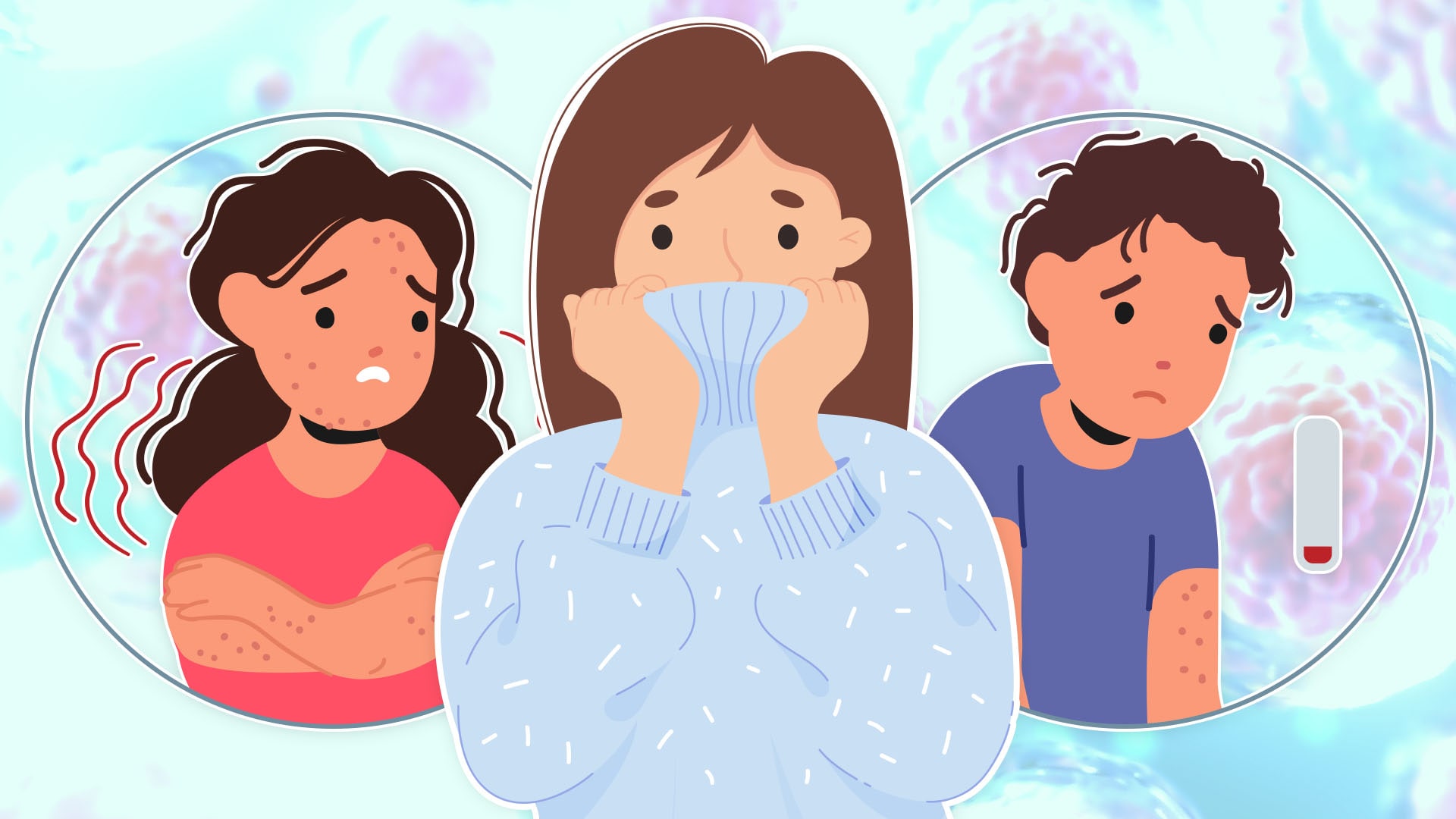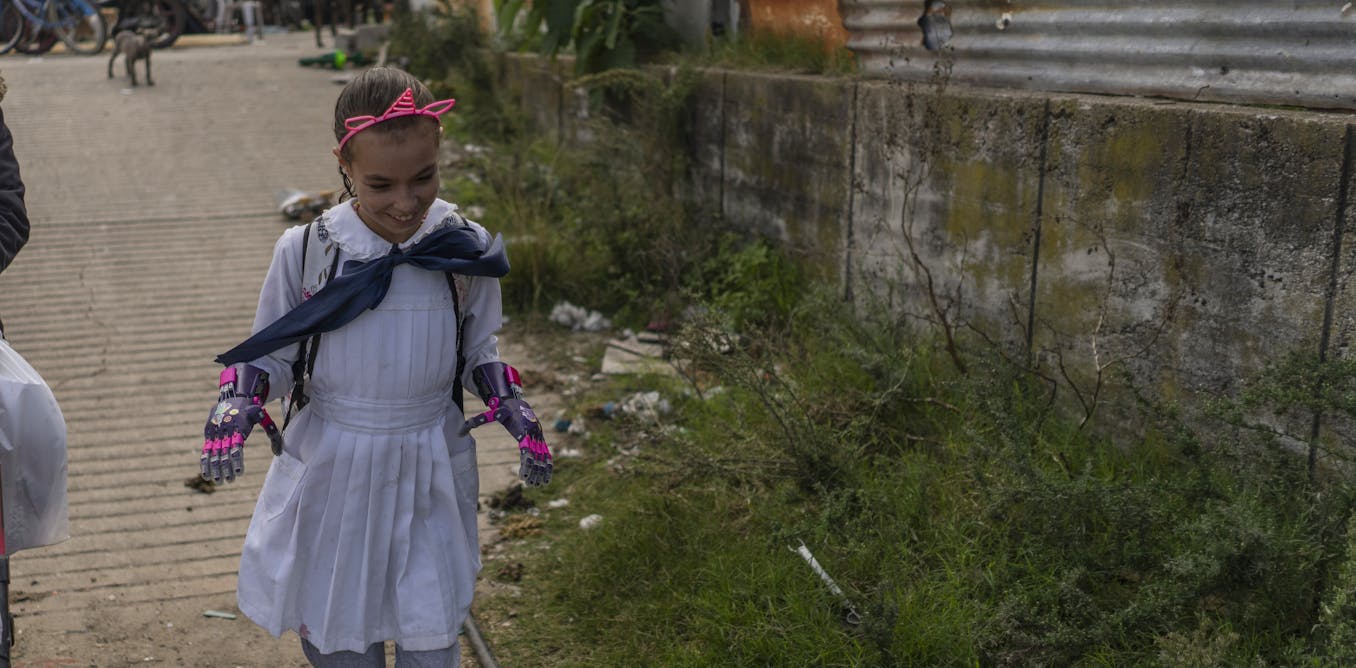WINTER weather can affect your health in many ways, from dry skin and dry eyes to a runny nose and achy joints.
But some of the symptoms associated with colder temperatures could also be linked to a cancer, a doctor has warned.
3

3

3
Feeling cold is common in winter, especially if you’re spending time outdoors.
Chills aren’t specifically a symptom you can develop with cancers.
But where cancers, especially blood cancers, affect the immune system, infections can more easily develop and cause chills, said Dr Joel Newman, Consultant Haematologist at Nuffield Health.
Related to this, Dr Newman added: “Sometimes in the winter we see ‘drenching night sweats’.
“These can be a symptom of some blood cancers like lymphomas, but of course, can also happen if you put on the winter duvet a bit too soon and you over-heat.”
Chills are often a sign that your body is fighting off an infection, especially when accompanied by other symptoms like fever
Dr Newman explained: “The chills relating to infections can make you shake uncontrollably and can make you feel like you just can’t get warm, even if you are in a warm environment.”
But with night sweats from lymphomas, these characteristically just happen at night time and not during the day.
Dr Newman said: “These are different as they are usually drenching to the point that you can feel both the bed/duvet/covers, any clothes or pyjamas worn can also become drenched.”
Another symptom caused by cold weather but could also signal cancer is fatigue.
In cold weather you require more energy to keep your body warm, which can cause fatigue as your body works harder.
Also, if you don’t eat enough this can also cause fatigue.
But extreme fatigue that doesn’t get better with rest can be an early sign of cancer.
Extreme fatigue that doesn’t get better with rest can be an early sign of cancer.
Cancer uses your body’s nutrients to grow and advance, so those nutrients are no longer replenishing your body.
This nutrient theft can make you feel extremely tired.
Unfortunately, it can be difficult to tell the difference between the two, said Dr Newman.
He advised: “Usually, those experiencing ‘normal’ fatigue will see an improvement with rest and recuperation, whereas fatigue
which are caused by cancers won’t.”
When should you see a GP?
If you’re ever concerned about any symptoms you’ are’re experiencing, then your GP can help work out if they’re worrying or not, said Dr Newman.
He added: “In regards to cancer specifically, other symptoms to look out for are unexplained weight loss, a persistent cough or changes in bowel habits/blood loss.
“Do not ignore these symptoms and speak to your GP.”
Cancer signs and symptoms
It’s important to be aware of any new or worrying symptoms. While likelihood of it being cancer is low, it’s important to get checked out by a GP.
The following signs are general symptoms to look out for.
Coughing, chest pain and breathlessness
If you experience a cough for three weeks or more, you should speak to your GP.
These symptoms can be signs of lung cancer, but can also signal conditions like pneumonia.
Changes in bowel habits
Speak to a GP if you’ve noticed changes in your usual bowel habits and it’s lasted for three weeks or more.
Changes include
- tummy discomfort
- blood in your poo
- Diarrhoea or constipation for no obvious reason
- a feeling of not having fully emptied your bowels after going to the toilet
- pain in your stomach or bottom (anus)
- your poo is loose, pale or looks greasy
Bloating
Speak to a GP if you’ve had bloating for three weeks or more.
Bleeding
Speak to a GP if you have unexplained bleeding, such as:
- bleeding in your urine
- vaginal bleeding between periods
- vaginal bleeding a year or more after the menopause (postmenopausal bleeding)
- bleeding from your bottom
- blood when you cough
- blood in your vomit
Lumps
Speak to your GP if you notice a lump in your breast or if you have a lump that’s noticeably increasing in size elsewhere on your body.
You should regularly check your breasts, underarms, groin and testicles for any new lumps or changes.
Moles
You should speak to your GP if you have a mole that:
- changes shape or looks uneven
- changes colour, gets darker or has more than two colours
- starts itching, crusting, flaking or bleeding
- gets larger or more raised from the skin
These changes could signal melanoma, a serious type of skin cancer.
Unexplained weight loss
You should also speak to a GP if you’ve lost a lot of weight over the last couple of months that cannot be explained by changes to your diet, exercise or stress.
Tummy or back pain
If you have pain anywhere in your tummy or back and you’re not sure what’s causing it, speak to your GP. This includes a dull pain that’s always there or a sharp pain that comes and goes.
Indigestion and heartburn
Some cancers can give you indigestion or heartburn and acid reflux. This can feel like burning in your chest (heartburn) and make you burp or hiccup more than usual.
If you get these symptoms regularly and are not sure why you’re getting them, see your GP.
Itchy or yellow skin
Speak to a GP if your skin is itchy, and your skin or the whites of your eyes turn yellow as this could be jaundice. Your pee may also look darker than usual.
Feeling tired and unwell
It’s important to speak to a GP if you think something is not right, or you keep feeling tired and unwell and you’re not sure why.
Source: NHS




